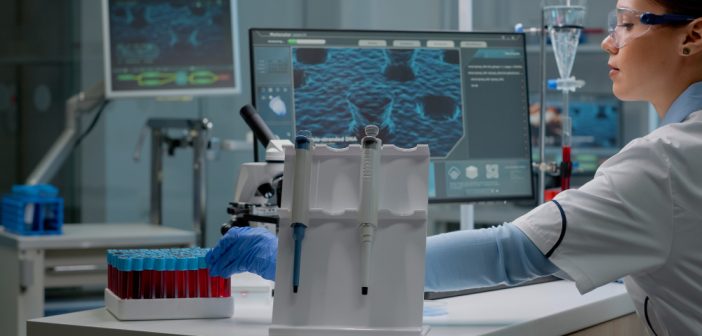Medical technologists are health professionals that contribute to the successful treatment of patients and help improve health outcomes. Their services are key to the quality of health care services delivered to patients in a hospital. In this article, you’ll learn more about their roles, subspecialty areas, salary and requirements to become one.
What is a medical technologist?
Medical technologists are health care workers that operate technical laboratory equipment for carrying out tests on collected patient samples. They conduct a variety of tests such as chemical analysis or microscopic examination of body fluids and tissues from patients.
What kind of jobs does a medical technologist do?
The role and responsibilities of medical technologists varies because of the different sub-specialty areas in the laboratory where they work.
- Clinical chemistry: Medical technologists who work in this department carry out chemical tests on body fluids such as urine, blood, joint fluid, etc. They use specific chemical laboratory instruments to measure the amount of certain chemicals in the body. For instance, if a patient has a suspected diagnosis of urinary stones, the doctor will request a clinical laboratory test to measure the level of chemicals such as calcium, oxalate crystals etc which are the causative factors. The medical technologist will analyze the urine sample and send a detailed report to the doctor. Then the physician makes an accurate diagnosis using the laboratory report as a confirmation.
- Microbiology: This department is focused on identifying the causative microorganism for specific diseases. Diseases are caused by numerous organisms like bacteria, fungi, protozoa, or viruses. It is the responsibility of the medical technologist to identify the particular organism(species inclusive) and to recommend the type of antibiotics that will eliminate the isolated bacteria. To prevent antibiotic resistance and to improve health outcomes, medical technologists in this department are expected to regularly provide accurate results. Doctors depend on the reports from microbiologists to prescribe the right drugs for patients suffering from an infection or in cases of multidrug-resistant infections.
- Pathology: Although a pathologist is the head of the department, medical technologists perform simple histological examinations of tissues collected from patients during surgery or routine procedures. A medical technologist’s duty include preparing microscopic slides, setting and providing a pathologist the laboratory tools required for the examination. They collaborate with a pathologist to examine tissue samples for cancerous cells and they send these reports to surgeons or physicians to initiate treatment procedures.
- Hematology: Technologists in this department work on blood samples only. They carry out a microscopic examination of blood cells to identify if there is evidence of high blood count as seen in infections or blood cancers like leukaemia. Also, they run the blood bank and help to provide safe and appropriate blood types for blood transfusion purposes. They provide urgent blood test results and blood for emergency room doctors who want to carry out emergency blood transfusion .
Training and education entails going through training from an approved college and need a practicing license to be employed in a health facility. They earn a bachelor’s degree after graduating and work as interns in a teaching hospital to acquire practical skills. They sit for license exams which they are expected to pass before practicing in the laboratory.
Medical technologist salary
The salary varies but typically they earn between $30,000 per annum for entry level ones to higher earnings of 81,000 per annum for the experienced ones. Their earning potential increases with the level of experience and skillset.
Career path
Medical technologists usually work in a hospital and as their laboratory experience rises, they may earn managerial roles in a hospital department.
A few medical technologists may choose to advance their career by earning a master’s or doctorate degree in a specific sub-specialty so they can lecture in medical technologist training programs. Medical technologists also include biomedical scientists and biomedical engineers, who work on designing medical equipment and devices. Some biomedical engineers work as consultants for different companies. Freelance biomedical scientists can help across a variety of areas such as data analysis, compliance and medical writing.
Consult freelance medical technologists and biomedical engineers on Kolabtree.







